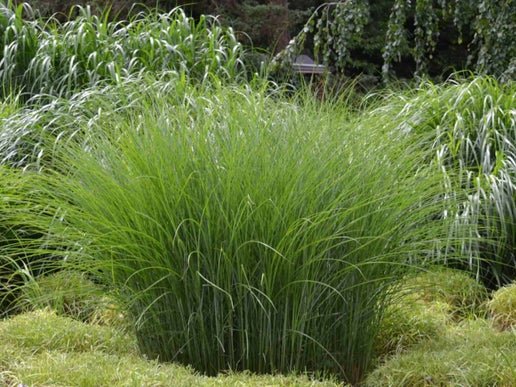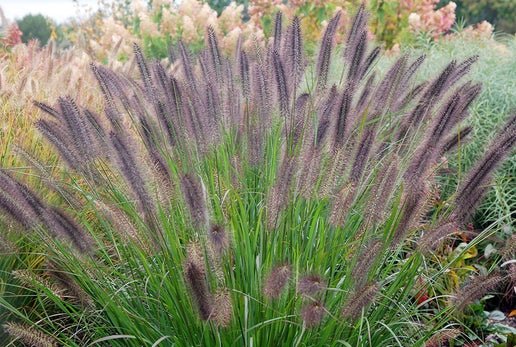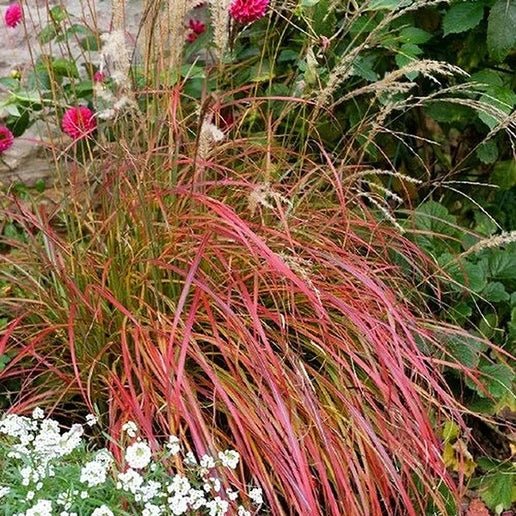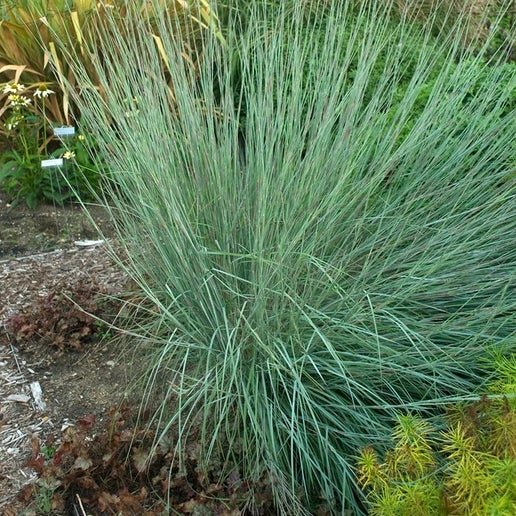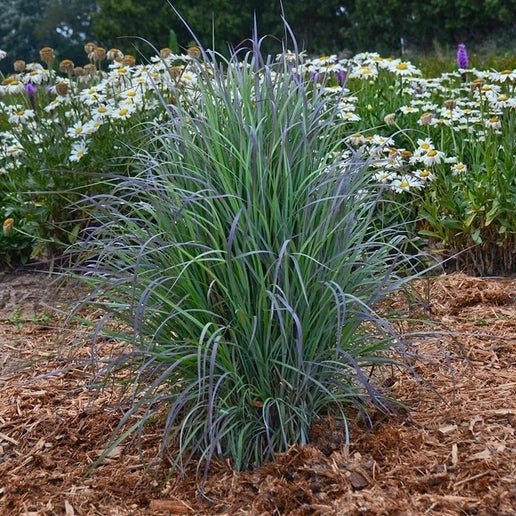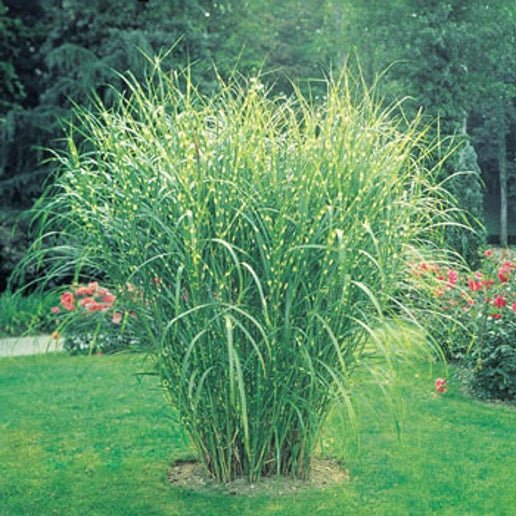 Image 1 of 1
Image 1 of 1


Zebra Grass
Zebra Grass (Miscanthus sinensis 'Zebrinus') is a striking ornamental grass known for its upright, arching form and distinctive green foliage adorned with horizontal yellow bands, resembling a zebra's stripes. In late summer to fall, it produces feathery, copper-tinged flower plumes that mature to silvery-white, adding visual interest to the landscape. This clump-forming grass is ideal for adding texture and movement to borders, mass plantings, or as a specimen plant.
Height/Spread: 5–8 ft tall × 4–6 ft wide
Bloom Time: Late summer to fall
Light: Full sun
Hardiness Zone: USDA Zones 4–9
Features:
Foliage: Green leaves with horizontal yellow bands
Flowers: Coppery-pink panicles turning silvery-white in fall
Habit: Clump-forming with an upright, arching shape
Uses: Borders, mass plantings, specimen plantings
Attracts: Birds
Resists: Deer, drought, erosion, pollution, rabbits
Care Tips:
Prune to the ground in late winter or early spring before new growth appears
Divide clumps every 2–3 years to maintain vigor
Tolerates a range of soil types but prefers moist, well-drained conditions
Water regularly during the growing season; once established, it's drought-tolerant
Ships in a 1-gallon pot (2-3 feet tall)
Zebra Grass (Miscanthus sinensis 'Zebrinus') is a striking ornamental grass known for its upright, arching form and distinctive green foliage adorned with horizontal yellow bands, resembling a zebra's stripes. In late summer to fall, it produces feathery, copper-tinged flower plumes that mature to silvery-white, adding visual interest to the landscape. This clump-forming grass is ideal for adding texture and movement to borders, mass plantings, or as a specimen plant.
Height/Spread: 5–8 ft tall × 4–6 ft wide
Bloom Time: Late summer to fall
Light: Full sun
Hardiness Zone: USDA Zones 4–9
Features:
Foliage: Green leaves with horizontal yellow bands
Flowers: Coppery-pink panicles turning silvery-white in fall
Habit: Clump-forming with an upright, arching shape
Uses: Borders, mass plantings, specimen plantings
Attracts: Birds
Resists: Deer, drought, erosion, pollution, rabbits
Care Tips:
Prune to the ground in late winter or early spring before new growth appears
Divide clumps every 2–3 years to maintain vigor
Tolerates a range of soil types but prefers moist, well-drained conditions
Water regularly during the growing season; once established, it's drought-tolerant
Ships in a 1-gallon pot (2-3 feet tall)


